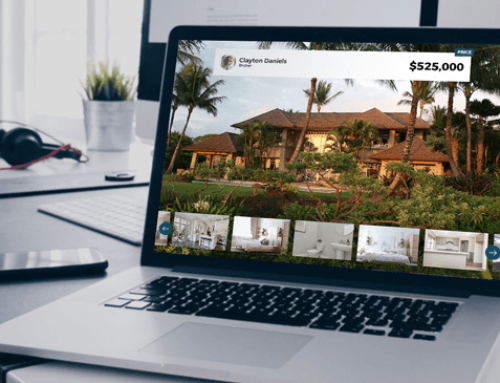In the competitive world of real estate, simply knowing your market isn’t enough. To stand out and build a strong reputation, you need to actively showcase your expertise. Hosting educational events is one of the most powerful ways to do this. By sharing your knowledge in an engaging way, you can position yourself as the go-to expert, build lasting relationships, and generate valuable leads. This comprehensive guide will show you how to plan and execute successful educational events that not only highlight your skills but also drive business growth.

1. Know Your Audience and Set Clear Objectives
Before you dive into event planning, take a step back to think about who you’re trying to reach and what you want to achieve. Understanding your audience will help you tailor content that resonates with their needs.
- Define Your Audience: Are you catering to first-time homebuyers, seasoned investors, or perhaps luxury property buyers? Knowing your target audience helps you create relevant, compelling content.
- Set Clear Objectives: What are you hoping to achieve with this event? Is it lead generation, brand awareness, or establishing yourself as a market expert? Define your goals to ensure your event is aligned with your business strategy.
- Tailor Your Content: Focus on providing value to your audience by addressing their specific concerns and interests. For example, first-time homebuyers may benefit from a “Home Buying 101” session, while investors may appreciate a deep dive into maximizing ROI.
2. Pick a Hot Topic That Sparks Interest
To capture attention, you need a topic that’s both timely and relevant to your audience. Choose a subject that not only educates but also engages.
- Stay Relevant: Stay updated on current real estate trends. Address issues like rising interest rates, housing market shifts, or the impact of technology on real estate. For example, “How to Thrive in a Shifting Market” could be an ideal topic during uncertain economic times.
- Offer Actionable Insights: Ensure your event provides valuable takeaways. Attendees should leave with practical knowledge they can apply immediately—whether it’s understanding the buying process or learning how to increase property value before a sale.
- Incorporate Engaging Formats: Workshops, panel discussions, and interactive Q&A sessions create opportunities for attendees to actively participate and gain a deeper understanding.
3. Create an Event That People Will Remember
The best educational events do more than teach—they leave a lasting impression. Here’s how to make yours unforgettable:
- Hybrid Approach: Blend in-person and virtual elements to reach a broader audience. Virtual tours, livestreamed sessions, and online participation can help attract attendees from all over.
- Use Technology to Elevate the Experience: Integrate tools like virtual tours, interactive polls, or live streaming to make your event more dynamic. For instance, showing a live walkthrough of a property during an event can add a valuable visual component.
- Network with Purpose: Make networking a key part of the experience. Virtual breakout rooms or casual cocktail hours (for in-person events) allow attendees to connect with each other and with you on a personal level, building stronger relationships.

4. Design a Welcoming and Comfortable Environment
The best events are ones where people feel comfortable and eager to engage. Whether you’re hosting in person or online, make sure your event is welcoming.
- Create a Warm Atmosphere: For physical events, think about the details—comfortable seating, lighting, refreshments, and clear signage all contribute to a positive experience. If the event is online, choose a user-friendly platform and ensure your attendees can easily access materials.
- High-Quality Content: Present content in a polished, engaging way. Use visuals, infographics, and case studies to illustrate your points. People learn better when information is presented in different formats.
- Provide Tangible Takeaways: Handouts, exclusive resources, or checklists will keep your audience engaged and allow them to remember key points after the event.
5. Market Your Event Like a Pro
Your event is only as successful as the number of people who attend, so promoting it effectively is crucial.
- Use Multiple Marketing Channels: Leverage your social media platforms, email marketing, and your website to spread the word. Announce your event in a variety of formats—posts, stories, and videos—to reach different audiences.
- Build Anticipation: Create a buzz around your event! Use countdown timers, teaser posts, and exclusive offers to generate excitement leading up to the big day.
- Collaborate with Partners: Consider partnering with local businesses or other professionals in the industry to co-host or promote the event. This can help you tap into new audiences and broaden your reach.
6. Measure Success and Gather Feedback
After the event, take the time to evaluate how it went. Measuring success and collecting feedback will help you improve future events.
- Track Key Metrics: Monitor attendance rates, audience engagement during the event, and how many leads you generated. This data will guide you in improving your next event.
- Collect Feedback: Send out surveys to attendees, asking them what they liked, what could be improved, and what topics they’d like to see in future events. This feedback will help you refine your approach.
- Analyze Results: Take the time to review what worked and what didn’t. Adjust your content, format, or promotion strategies based on your analysis.
7. Follow Up and Keep the Momentum Going
Your event is just the beginning of the relationship-building process. Use follow-up strategies to maintain momentum and nurture leads.
- Thank Attendees: Send personalized thank-you notes to express gratitude for their attendance. This is also an opportunity to offer additional resources or an invitation for a one-on-one consultation.
- Follow Up with Leads: Reach out to those who showed interest but didn’t convert during the event. Tailor your messages to address their specific needs or concerns.
- Stay Connected: Keep the conversation going with email newsletters, exclusive invitations to future events, and social media engagement. Maintaining regular touchpoints ensures you stay top of mind.
8. Make It Fun and Memorable
An educational event doesn’t have to be all business—it should also be fun! Inject some excitement into your events to make them more memorable and enjoyable for your attendees.
- Incorporate Games and Contests: Light-hearted activities like trivia games or raffles can break the ice and make the event more interactive. For example, you could host a “Real Estate Myths” quiz, where attendees can win prizes while learning something new.
- Leverage Humor and Stories: Don’t be afraid to share personal anecdotes or humorous stories from your experience. A relatable, approachable style will help you connect with attendees on a deeper level.

Showcase Your Expertise and Grow Your Real Estate Business
Hosting educational events isn’t just about sharing knowledge—it’s about building relationships, establishing trust, and creating lasting value for your audience. By following these guidelines, you can host events that not only showcase your real estate expertise but also boost your credibility, generate leads, and set the foundation for future business growth.
Now’s the perfect time to start planning your next event. With the right approach, you’ll not only educate your audience but also solidify your position as a trusted and go-to real estate expert in your market!






